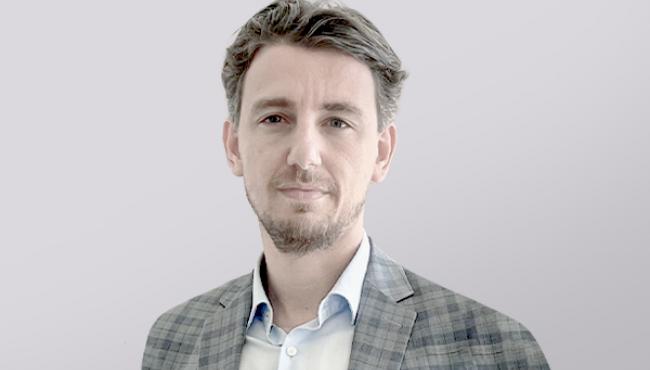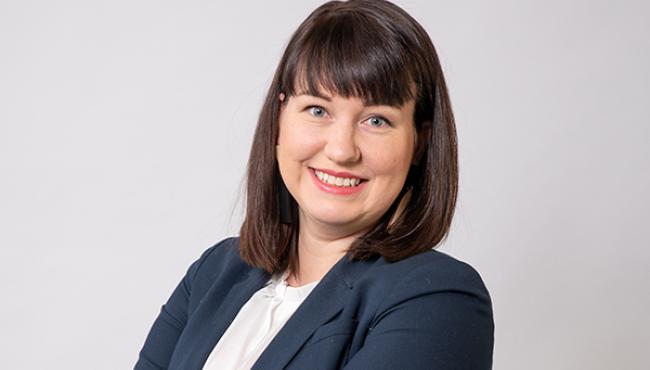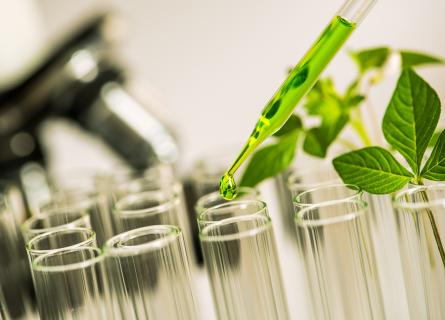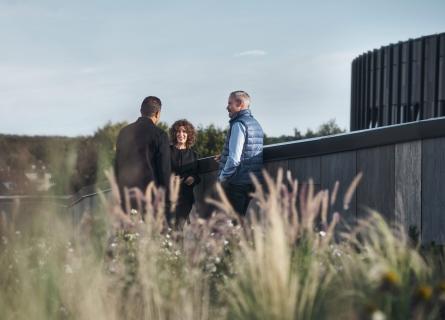
Game changer
Interview with Tom van Aken, CEO of Avantium
Avantium is a pioneer in the emerging industry of renewable and sustainable chemistry. Its lead product is PEF, a novel, plant-based, recyclable plastic material. CEO Tom van Aken talks about the company's journey and the importance of partnerships.
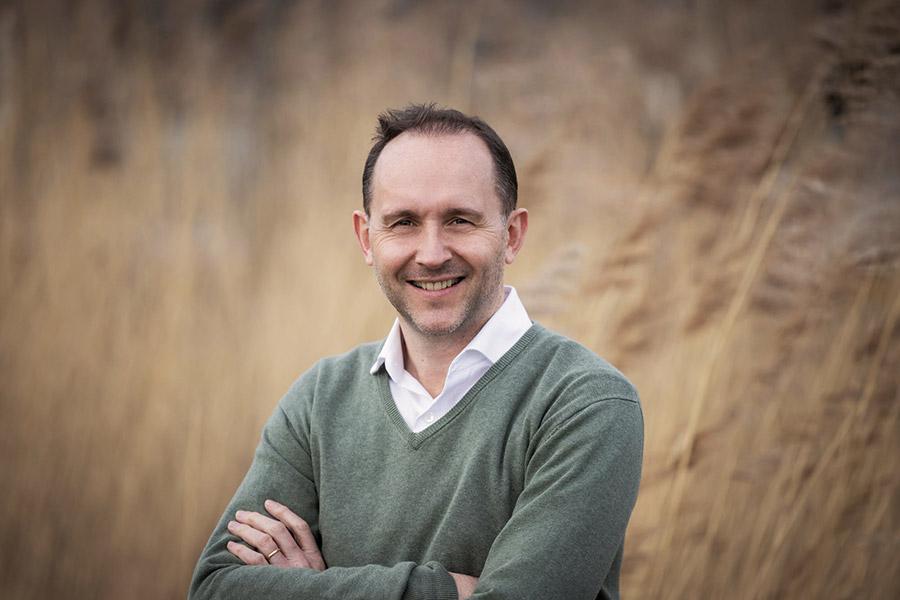
First of all, congratulations on the financial close! You have been leading Avantium for almost two decades. How does this feel now, and can you tell us a little bit more about the journey?
Thank you. Yes, this is an exciting time for Avantium. It has been a fascinating journey right from our start. In the beginning, the company was completely different: we worked with a very small team, and many people thought we were completely mad to develop furandicarboxylic acid (FDCA) and polyethylene furanoate (PEF). That was considered too ambitious by most people.
We are now a much more mature, professional organisation. As CEO, it has been a very exciting journey to transition from an R&D focused company with traits like innovation and creativity to a commercial company where project management and engineering are equally important. We went from financing an R&D chemistry project to full commercialisation. It has taken more time and effort than expected, but I cannot wish for a better experience.
It has been a phenomenal journey with many ups and good moments that offset some of the deep valleys we had to battle through. So yes, I am very blessed to be the CEO of such a great company.
Thanks to your hard work, many of us in the industry are becoming very familiar with the terms FDCA and PEF. Can you share with our readers what makes these chemicals so unique?
We describe FDCA as a sleeping giant. Sleeping because no one knew how to produce it economically at a high quality. And a giant because it has a huge potential as a plant-based version of terephthalic acid. Which is, of course, one of the key building blocks to producing the well-known plastic PET.
The beauty of FDCA is that it is costly to make from petroleum. So, it is logical to make it sugar-based. However, once we were able to produce FDCA, everyone started wondering: Congratulations, now what are you going to do with it?
There are many polymers that you can produce based on FDCA, but we were particularly focused on polyesters and, in particular, on PEF. Around 12 years ago, we found out that this polymer has phenomenal properties. It is a 100% plant-based and fully recyclable product, which, if it unintentionally ends up in nature, will not accumulate there because it ultimately will be broken down by natural processes. We see this as a safety salve, as we, of course, don’t encourage people to litter PEF in nature.
The really differentiating factor is its performance and barrier properties. The superior mechanical and thermal properties of PEF make it a very interesting polymer. This makes it very suitable for bottles and packaging.
Now it is a matter of finding the right partners to use and purchase PEF. By now, in the packaging industry, PEF has become a product that people are aware of. As 100% plant-based, it fully fits into the circular economy. It is the first plant-based product with better properties and performance than, e.g., the petrochemical versions of this polyester.
I always like to see the surprise among brand owners and packaging experts regarding the fact that it is really better than PET and other types of polymers they are used to. Their perception is that if it is bio-based, its performance should be worse, as shown by history.
In that sense, we bring a polymer to the market that sets new performance standards. If PEF did not have superior performance, I am not sure we would have reached this point. In combination with the performance, the ecological footprint is the driver to bringing the polymer successfully to the market. It would have been very difficult if one of them had not been present.
You are developing PEF for a wide range of applications such as packaging, textiles and films, and have managed to partner with many industry leaders such as LVMH Group for cosmetics packaging, Carlsberg for novel beer bottles and Salomon for joint textile yarn development. How important are partners for Avantium?
Right from the beginning, partnerships have been extremely important for us. As a small company, you will never be able to launch such a new product on the market. You need partners that help to build up a value chain.
Everyone likes to talk about the brand owners because these are the names that most people are familiar with. Ten years ago, Coca-Cola Company and Danone were the first brand owners to support us. More recently, we have partnered with brand owners such as Carlsberg, Louis Vuitton, and InBev. There is a whole list of other partners we are working with to bring PEF to the market. Currently, we are constructing the world’s first commercial plant to produce PEF, and the material will be available in 2024. That it comes to market in such a short time frame also makes it appealing for brands to consider partnering with us.
The most challenging time for us was when we had to sell a concept, and there was no prospect of the product hitting the market any time soon. In that sense, I really want to compliment companies like Danone and Coke for being visionary ten years ago.
It made a difference for us, bringing these well-known brand partners on board. The world suddenly understood what this was about.
How do you see the timing of your investment from the perspective of today’s operating environment? On the one hand, there has never been stronger support for bio-based recyclable plastics, while on the other, we are amid an unforeseen energy and geopolitical crisis.
The current situation has got an impact on our project. This is not an ideal time to build a plant, and we see other companies stopping similar projects or putting them on hold. For Avantium, this is not really an option, as we have customers who have planned product launches based on this commercial facility that’s currently being constructed. Maybe more than ever, this energy crisis highlights our unsustainable dependence on fossil feedstock. The need to switch to renewable materials – that are circular and can help us reduce our dependence on petroleum – is more evident than ever. We thus must move on and find our way to deal with the current challenges. With our partners, we are stronger than ever before. We at Avantium are used to headwinds and how to overcome them.
Our team gave you a bit of a hard time over the past two years. Can you describe the benefits of working with AFRY in the process of raising loans for the investment?
Our team never considered this process to be a hard time. We saw your tough questions as a sort of catalyst to help us professionalise and improve. You were setting standards. I can guarantee you that we will be better prepared the next time we run a project like this.

Bioindustry Management Consulting
To survive and flourish, industries and companies must adapt and innovate at an ever-increasing rate. Our dedicated team of nearly 200 industry experts advise clients across bioeconomy value chains from forestry to packaging and retail, as well as from new bio-based materials to novel new end-uses.
This article was originally published in the Autumn 2022 Bioindustry edition of AFRY Insights.
